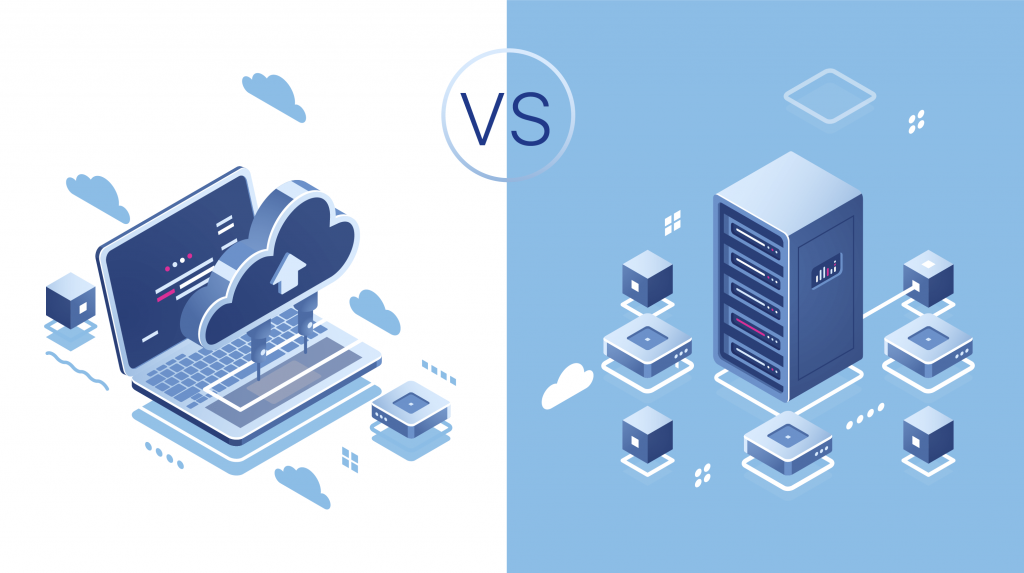The fact is that in today’s world of enterprise IT, companies consider many factors when it comes to deciding whether a cloud infrastructure is the right fit for their organization or not. Then, there are also some companies that are not entirely capable of making a leap into the cloud and instead rely on their on-premise applications and software to operate their businesses.

But hey! It’s no surprise that cloud computing has grown in popularity. It’s definitely profitable with all its newfound flexibility for enterprises, everything from saving time and money to improving agility and scalability. Similarly, on-premise software that are installed on company-owned servers continue to adequately serve your business needs with reliability, security, and control.
However, with discussions among various IT decision-makers, it has been accepted that in addition to on-premise and legacy systems, businesses will need to leverage the cloud and SaaS applications to achieve their business goals.
Must Read: Banks Taking Care of Potential Computing Risks
Cloud Computing vs On Premises: The Key Differences
There are some typical differences between cloud computing and on-premises and today we’ll discuss each one of them in more details:
Cost
– On Premises: While deploying software on premise enterprises must be the ones responsible for the ongoing costs of the server hardware, power consumption, and space.
– Cloud Computing: On the other hand, enterprises that use cloud computing only need to pay for the resources that they use. No maintenance and upkeep costs. In fact, the price can be adjusted up or down, depending on how much space is consumed.
Security
– On Premises: For enterprises like the government or the banking industry, the level of security and privacy needs to be on a high level. This is why they need an on-premises environment. So, despite some of the drawbacks and price tag of on premises systems, it still makes more sense when compared to the cloud. Wondering why?
– Cloud Computing: Well, that’s because security concerns remain the number one barrier to cloud computing deployment. There have been so many cloud breaches that IT departments all around the world are concerned.
Also Read: 5 Most Common Uses of Cloud Computing
Compliance
– On Premises: Companies these days operate under regulatory controls, regardless of the industry which requires them to maintain detailed records, and keep other government and industry regulations in check. So, for companies that are subject to such regulations, it is vital that they remain compliant and know where their data is at all times.
– Cloud Computing: Companies that choose cloud computing to maintain detailed records must do their due diligence and ensure that the third-party provider they use is up to code and in fact compliant with all of the different regulatory mandates within their industry because sensitive data must be secured, and customers, partners, and employees must all have their privacy ensured at all times.
Deployment
– On Premises: Operating in an on-premises environment, you’d know that resources are deployed inhouse and an enterprise is responsible for maintaining the solution and all its related processes.
– Cloud Computing: With the cloud in the picture, yoou can try different forms of cloud computing, such as public cloud, private cloud, and a hybrid cloud.
Recommended Read: How Edge Computing Makes Way for Digital Transformation
For more articles like “Cloud Computing vs On Premise”, follow us on Facebook, Twitter, and LinkedIn.